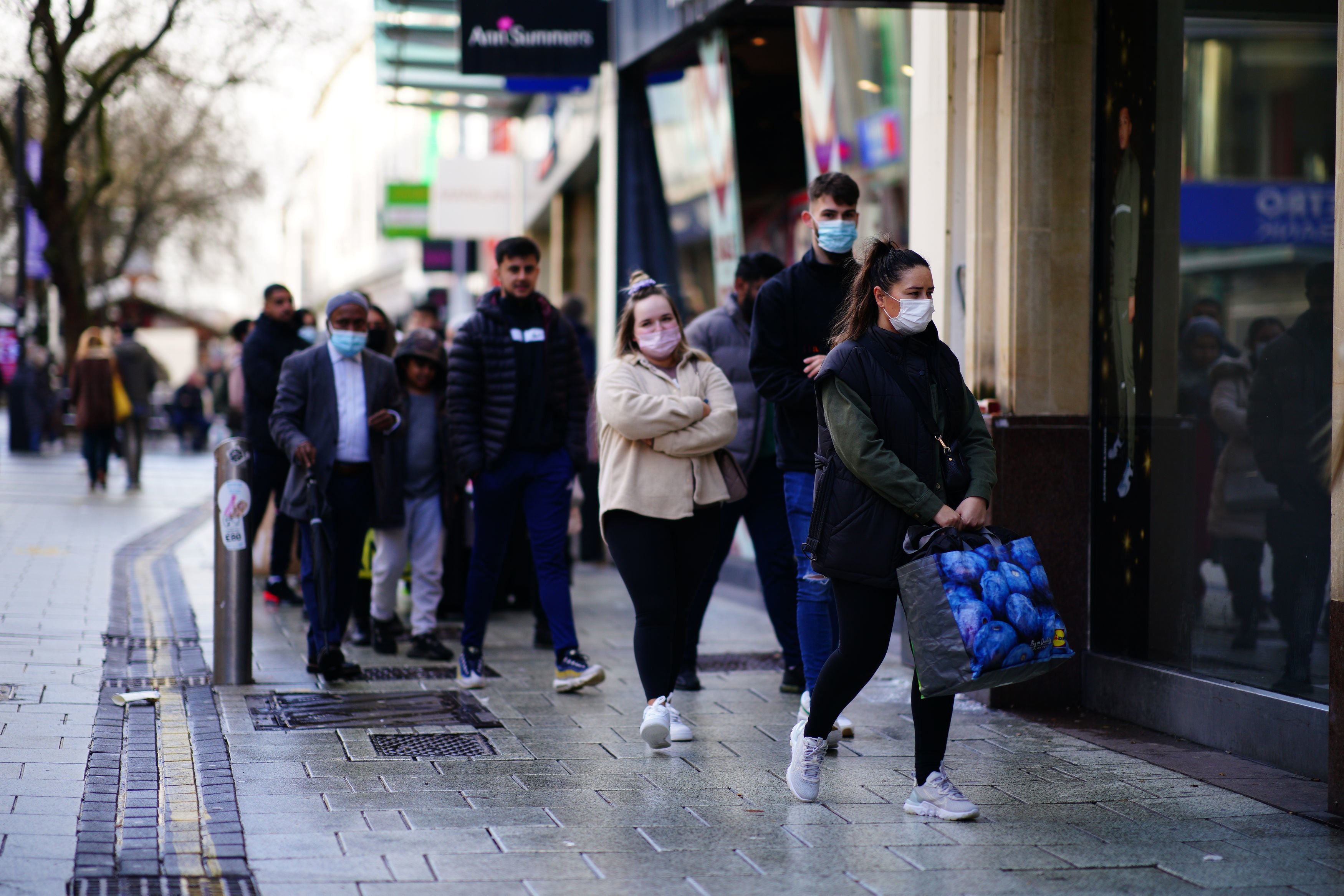Shoppers avoid first day of post-Christmas sales as footfall drops amid Covid concerns
Retail parks, shopping centres and high streets saw up to a 47 per cent decrease in shoppers post-Christmas

Your support helps us to tell the story
From reproductive rights to climate change to Big Tech, The Independent is on the ground when the story is developing. Whether it's investigating the financials of Elon Musk's pro-Trump PAC or producing our latest documentary, 'The A Word', which shines a light on the American women fighting for reproductive rights, we know how important it is to parse out the facts from the messaging.
At such a critical moment in US history, we need reporters on the ground. Your donation allows us to keep sending journalists to speak to both sides of the story.
The Independent is trusted by Americans across the entire political spectrum. And unlike many other quality news outlets, we choose not to lock Americans out of our reporting and analysis with paywalls. We believe quality journalism should be available to everyone, paid for by those who can afford it.
Your support makes all the difference.The number of shoppers at post-Christmas sales on Monday dropped by 37.2 per cent compared to Boxing Day 2019, according to new figures, as the extended bank holiday and Covid fears dampened demand.
Retail analyst Springboard found footfall in retail parks, high streets and shopping centres all saw a decline of up to 47 per cent compared to pre-pandemic levels.
On Monday, retail parks saw footfall down by 10.9 per cent, shopping centres by 42.3 per cent and high streets by 47 per cent.
Diane Wehrle, insights director at Springboard, told the BBC: “The greater attraction of retail parks is in part likely to be a result of shoppers restocking groceries following the weekend’s festivities.”
On Boxing Day, there was also a decrease in football across shopping locations compared to pre-pandemic levels.
There was a 48.4 per cent drop footfall in shopping centres, 40.2 per cent in retail parks and 37.7 on high streets.
Ms Wehlre said: “A major reason for the significantly lower footfall compared with 2019 will be due to consumers’ ongoing nervousness about the Covid infection rate.
“This will have been compounded by the fact that a few multiple retailers opted not to open on Boxing Day which will have deterred some shoppers.
Many big name stores – including Next, John Lewis and M&S – opted to stay closed on Boxing Day despite usually staying open and attracting shoppers.
“In addition, Sunday generally has the lowest footfall on any day in the week so a comparison with 2019 when Boxing Day fell on a Thursday will always have meant that footfall would be lower than two years ago,” said Ms Wehlre.
“Despite this, most multiple retailers still opened their doors to shoppers, and the mild weather should have meant that it was easy for shoppers to visit stores and destinations.”
In central London, the drop in footfall was particularly high with 61.8 per cent fewer shoppers compared to Boxing Day in 2019.
Ms Wehrle said: “Footfall is weaker in central London than in large city centres elsewhere in the UK, which in part is likely to be a result of cancellations of trains restricting shoppers’ ability to get into the capital.”
Join our commenting forum
Join thought-provoking conversations, follow other Independent readers and see their replies
Comments